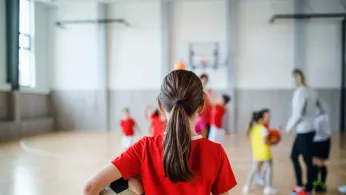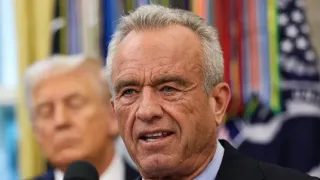
3 hours ago
New York Appeals Court Temporarily Blocks Nassau County’s Transgender Athlete Ban, Citing State Discrimination Law
READ TIME: 3 MIN.
A legal battle over the rights of transgender athletes in New York reached a critical juncture this week when a state appeals court temporarily barred Nassau County from enforcing a controversial ban on transgender women’s participation in female sports at county-run parks and recreational facilities. The ruling marks a significant setback for local officials who sought to restrict transgender athletes under the banner of protecting the “integrity and safety of women’s sports,” and a victory for LGBTQ+ advocates who argued the ban was discriminatory and inconsistent with state law.
The case centers on an executive order issued earlier this year by Nassau County Executive Bruce Blakeman, a Republican, which prohibited transgender women and girls from competing on female teams at more than 100 county facilities. After a lawsuit filed by the New York Civil Liberties Union (NYCLU) on behalf of the Long Island Roller Rebels, a local women’s roller derby league, a state court struck down the order. In response, the county’s Republican-controlled legislature passed a law enshrining the ban, prompting a fresh round of litigation.
Earlier this week, a lower court judge, R. Bruce Cozzens, ruled that the county’s policy was “narrowly tailored” and “does not categorically exclude transgender individuals from athletic participation,” since they could still join coed leagues. That decision was swiftly appealed by the NYCLU, which argued the policy violated New York State’s Human Rights Law, widely regarded as one of the nation’s strongest anti-discrimination statutes.
On Wednesday, the state appellate division issued a stay, preventing the county from enforcing the ban while the legal challenge proceeds. The appellate judges emphasized that forcing the women’s roller derby league to become coed would “change the identity of the league,” threatening not only its status with the sport’s governing body but also its ability to recruit members and find competitors. The court’s decision signals that policies which effectively bar transgender women from women’s sports—even if framed as preserving single-sex competition—may not survive legal scrutiny under New York’s robust civil rights protections.
Amanda “Curly Fry” Urena, president of the Long Island Roller Rebels, expressed relief at the appellate ruling, saying players were “thrilled” the higher court saw through what she described as Nassau County’s “transphobic and cruel ban”. Urena’s comments reflect the deep personal impact such policies have on transgender athletes and their allies, many of whom see participation in sports as a vital part of community belonging and personal identity.
Gabriella Larios, an attorney with the NYCLU, hailed the decision as a clear affirmation that “any attempt to ban trans women and girls from sports is prohibited by our state’s antidiscrimination laws”. Larios’s statement underscores the broader legal principle at stake: that policies targeting transgender people for exclusion from public life are increasingly vulnerable to challenge under state and federal civil rights frameworks.
Nassau County Executive Bruce Blakeman, meanwhile, vowed to “continue to protect the integrity and safety of women’s sports,” though a spokesperson did not immediately clarify whether the county would comply with the appellate court’s order. The county’s position reflects a growing national debate over the place of transgender athletes in sports, with conservative lawmakers and advocates often framing the issue as one of fairness and safety, while LGBTQ+ organizations and civil rights groups counter that such arguments are a pretext for discrimination.
The appellate court’s stay is temporary, and the legal battle over Nassau County’s ban is far from over. The case will likely return to the lower court for further proceedings, with the possibility of additional appeals regardless of the outcome. Legal experts predict that the dispute could eventually reach New York’s highest court, the Court of Appeals, given the significance of the constitutional and statutory issues involved.
In the meantime, transgender athletes and their allies are celebrating a provisional victory. For the Long Island Roller Rebels and similar organizations, the ruling means they can continue to compete as they have, without the looming threat of exclusion. The case also serves as a reminder that, even in politically divided times, state laws and courts can provide critical protections for marginalized communities.
As the national conversation about transgender rights in sports continues to evolve, the Nassau County litigation offers a real-time case study in how legal frameworks, community advocacy, and public opinion intersect. For now, the message from New York’s appellate court is clear: policies that single out transgender people for exclusion are on shaky legal ground in the Empire State.






